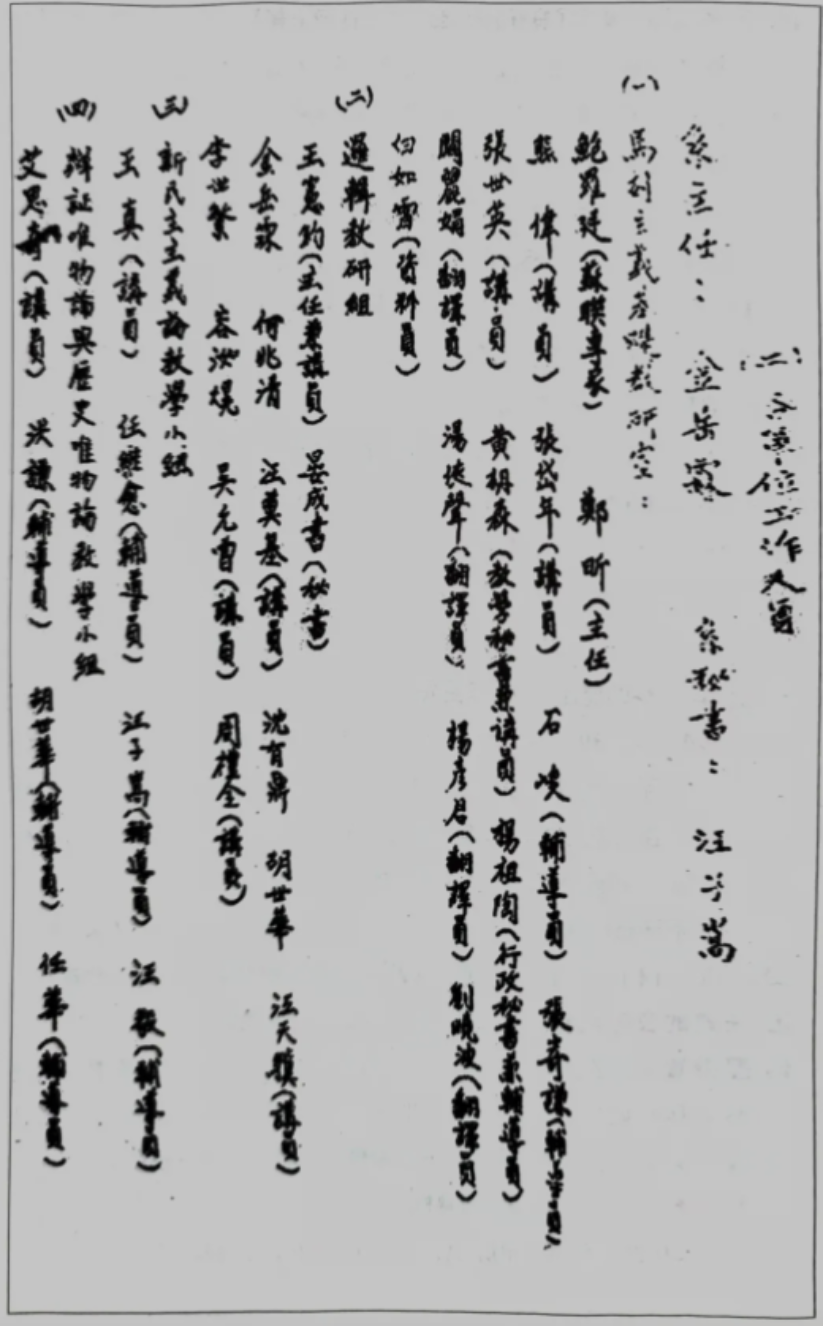



A Brief Early History of Logic and Peking University
(excerpted from 北大哲学系逻辑学科史, for more information about the history after 1952 see also 北大逻辑学科简史 (in Chinese))
The introduction of Logic to China began in the early 20th century, with Peking University (PKU) playing a pivotal role. In 1905, Fu Yan, a former PKU president, translated John Stuart Mill's "A System of Logic," marking the inception of logic studies in China. Fu Yan also translated Jevons' "Primer of Logic" and emphasized both deductive and inductive logic in his commentaries, addressing China's need for scientific methods. Notably, Fu Yan coined the Chinese term "逻辑" for Logic, which was popularized by Shenfu Zhang, another PKU philosophy professor.
In 1920, Bertrand Russell spent nearly a year in China, delivering five series of lectures at PKU. Although his visit was cut short due to illness, he managed to give two lectures on mathematical logic. PKU professors Shenfu Zhang and Dianji Wang enthusiastically promoted modern logic in China. Russell's lecture notes on logic were first published by PKU with Zhang's bibliography of Russell's work. Wang published the first Chinese book on Russell's mathematical logic in 1927, followed by his 1937 book "Modern Logic," which introduced the three main schools of mathematical logic to Chinese audiences.
Concurrently, scholars like Shizhao Zhang and Shih Hu researched ancient Chinese logical thought. Zhang compared Western traditional logic with pre-Qin Mohist logical ideas and wrote an influential logic textbook in 1939. Hu, another former PKU president, made significant contributions with his comprehensive works on Chinese philosophy and logical methods.
Despite these efforts, early logic courses at PKU lacked discussions on logic systems. This deficiency was partially addressed by Yuelin Jin at Tsinghua University in the 1930s. Jin's book "Logic" (1936) introduced Russell and Whitehead's "Principia Mathematica" more comprehensively, though it still focused more on concepts and philosophy than formal theories.
A significant advancement came with Xianjun Wang, who studied in Tsinghua, Germany, and Austria and was possibly the only Chinese to register and attend Gödel's courses in Vienna. Returning to China in 1938, Wang joined the National Southwestern Associated University (a wartime merger of PKU, Tsinghua, and Nankai universities) and elevated mathematical logic teaching to new heights. His rigorous courses greatly influenced Hao Wang, who later became a world-renowned logician and philosopher.
In the 1940s, despite the war, PKU logicians began producing original work in logic, gaining international attention. Notable among these was Shihua Hu (Tzu-Hua Hoo)'s contributions to many-valued logic.
The 1952 reorganization of Chinese universities concentrated almost all of China's logicians in PKU's philosophy department. These included Yuelin Jin, Youding Shen, Xianjun Wang, and Liquan Zhou from Tsinghua University; Shihua Hu and Chengshu Yan from Peking University; Dianji Wang from Beijing Normal University; Zhaoqing He from Nanjing University; Tianji Jiang from Wuhan University; Shifan Li from Fu Jen Catholic University; Yunzeng Wu from Yenching University; and Ruhuang Rong from Sun Yat-sen University.
In 1952. a dedicated Teaching and Research Unit for Logic was established in the department, with Xianjun Wang as its founding head, marking the beginning of the PKU logic group and a new era of logical studies in China.
